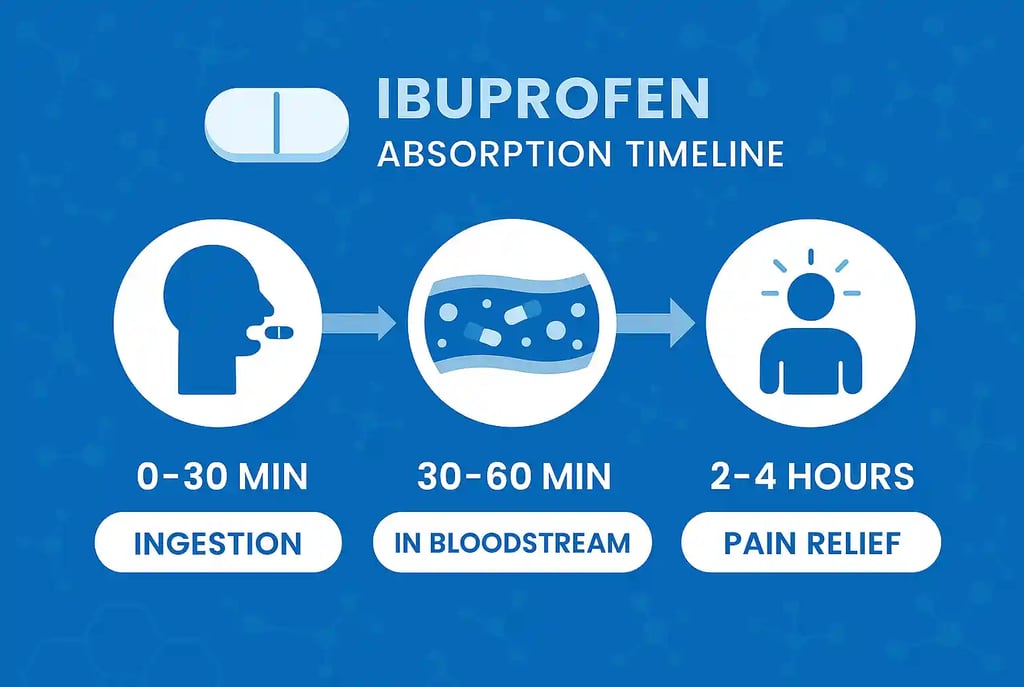How Ibuprofen Is Absorbed and Processed in the Body
Ibuprofen absorption explained: learn how ibuprofen enters the bloodstream, how long it takes to work, and the factors that affect its effectiveness and safety.


How Ibuprofen Is Absorbed and Processed in the Body
When you take ibuprofen, your body begins absorbing it almost immediately. Most oral ibuprofen is absorbed in the small intestine, not the stomach, which helps explain why it can take 15 to 30 minutes to begin working. Peak levels in the bloodstream are usually reached within 1 to 2 hours, depending on whether you've taken it with food, and the specific form of ibuprofen (tablet, liquid, gel cap, etc.).
Food can slow down the absorption slightly, delaying how quickly you feel relief — but it doesn't reduce how much is absorbed overall. Taking ibuprofen with food is often recommended to help protect the stomach lining, especially if you’re prone to irritation. Once absorbed, ibuprofen travels through the bloodstream to reduce inflammation and pain at the source.
FAQ
How quickly is ibuprofen absorbed?
Most people begin to feel effects within 30 minutes. Full absorption typically occurs within 1 to 2 hours after taking it by mouth.
Does taking it with food slow down absorption?
Yes — taking ibuprofen with food may delay its onset by 10 to 30 minutes, but it doesn’t reduce its effectiveness. The tradeoff is improved stomach protection/better chance of not getting an upset stomach from it.
Does the form of ibuprofen affect how fast it's absorbed?
Yes — liquid forms or gel caps are often absorbed faster than traditional tablets. Fast-acting or solubilized versions are also designed for quicker and more immediate relief.
How long does ibuprofen stay in your system after it's absorbed?
The half-life of ibuprofen is about 2 hours, meaning the body eliminates half the dose in that time. Most of the medication is cleared from your system within 6 to 8 hours, although traces may remain longer. For more details, click here.
Is faster absorption always better?
Not necessarily. Faster absorption may bring quicker pain relief, but taking ibuprofen too often or at higher doses can increase the risk of side effects. Always follow dosage instructions carefully and if you have any questions or doubts, contact a healthcare provider.
Disclaimer
This page summarizes information from trusted medical sources and is provided for general knowledge only. lt is not medical advice; Always consult your doctor or pharmacist for personal medical guidance (For a more comprehensive explanation please see the full disclaimer).
Resources
The information above has been gathered from several reputable sources, including the following:
[1] Mayo Clinic – Ibuprofen (Oral Route)
[2] MedlinePlus – Ibuprofen
[3] FDA – Ibuprofen Drug Safety Information


